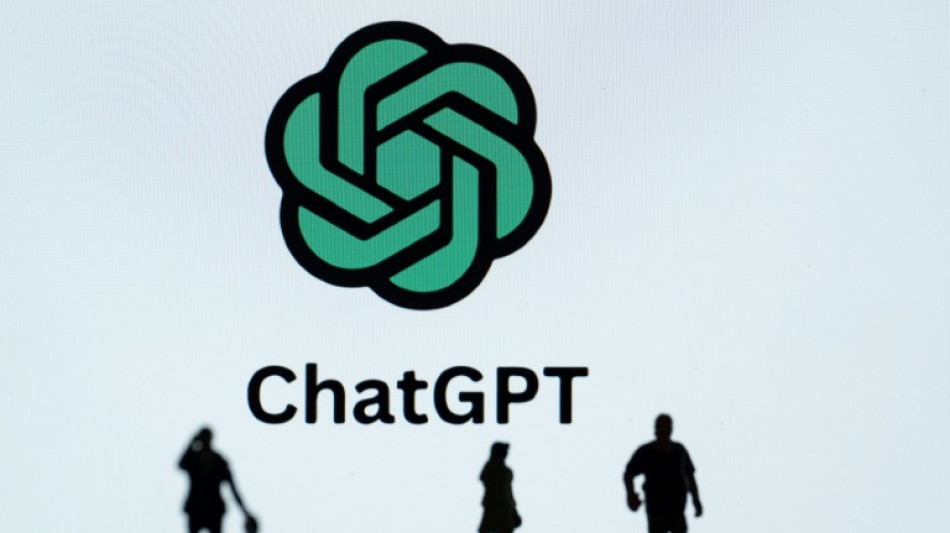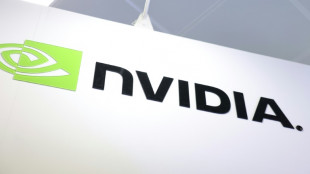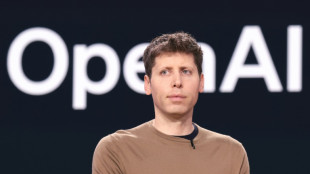
-
 US writes off over $1 billion of Somalia debt
US writes off over $1 billion of Somalia debt
-
Stock markets climb, dollar dips as US votes

-
 Boeing union approves contract, ending over 7-week strike
Boeing union approves contract, ending over 7-week strike
-
Stock markets rise, dollar falls as US votes

-
 US September trade deficit widest in over two years
US September trade deficit widest in over two years
-
'Black day': French workers protest Michelin plans to close two plants

-
 Saudi Aramco's quarterly profit drops 15% on low oil prices
Saudi Aramco's quarterly profit drops 15% on low oil prices
-
Spain unveils aid plan a week after catastrophic floods

-
 Europe auto struggles lead to cuts at Michelin, Germany's Schaeffler
Europe auto struggles lead to cuts at Michelin, Germany's Schaeffler
-
Norway speeds ahead of EU in race for fossil-free roads

-
 Most Asian markets rise as US heads to polls in toss-up vote
Most Asian markets rise as US heads to polls in toss-up vote
-
Nintendo lowers sales forecast as first-half profits plunge

-
 Most Asian markets rise ahead of toss-up US election
Most Asian markets rise ahead of toss-up US election
-
Saudi Aramco says quarterly profit drops 15% on low oil prices

-
 Boeing union says approves contract, ending over 7-week strike
Boeing union says approves contract, ending over 7-week strike
-
New Hampshire hamlet tied in first US Election day votes

-
 China's premier 'fully confident' of hitting growth targets
China's premier 'fully confident' of hitting growth targets
-
Asian markets swing ahead of toss-up US election

-
 Turkey sacks 3 mayors on 'terror' charges, sparking fury in southeast
Turkey sacks 3 mayors on 'terror' charges, sparking fury in southeast
-
Prince William plays rugby on S.Africa climate prize visit

-
 Striking workers weigh latest Boeing contract offer
Striking workers weigh latest Boeing contract offer
-
Montreux Jazz Festival hails 'godfather' Quincy Jones

-
 Stock markets hesitant before knife-edge US election
Stock markets hesitant before knife-edge US election
-
'War ruined me': Lebanon's farmers mourn lost season

-
 Stock markets rise before knife-edge US election
Stock markets rise before knife-edge US election
-
Eight on trial over French teacher's 2020 beheading

-
 Ryanair profit falls, growth hit by Boeing delays
Ryanair profit falls, growth hit by Boeing delays
-
Quincy Jones, entertainment titan and music mastermind

-
 Most markets rise ahead of US vote, China stimulus meeting
Most markets rise ahead of US vote, China stimulus meeting
-
Most Asian markets rise ahead of US vote, China stimulus meeting

-
 Climate finance billions at stake at COP29
Climate finance billions at stake at COP29
-
Nations gather for crunch climate talks in shadow of US vote

-
 Asian markets rise ahead of US election, Chinese stimulus meeting
Asian markets rise ahead of US election, Chinese stimulus meeting
-
No need to tell your husband: Harris banks on women's votes

-
 Striking Boeing workers set to vote on latest offer
Striking Boeing workers set to vote on latest offer
-
Pakistan shuts primary schools in Lahore over record pollution

-
 Fading literature: Delhi's famed Urdu Bazaar on last legs
Fading literature: Delhi's famed Urdu Bazaar on last legs
-
Green shoots spring from ashes in Brazil's fire-resistant savanna

-
 Serbia to demolish 'German' bridge amid outcry
Serbia to demolish 'German' bridge amid outcry
-
War decimates harvest in famine-threatened Sudan

-
 Nuts! NY authorities euthanize Instagram squirrel star
Nuts! NY authorities euthanize Instagram squirrel star
-
Nvidia to join Dow Jones Industrial Average, replacing Intel

-
 US stocks rebound on Amazon results ahead of Fed, election finale
US stocks rebound on Amazon results ahead of Fed, election finale
-
Wall Street bounces while oil prices climb on Middle East worries

-
 For a blind runner, the New York marathon is about 'vibrations'
For a blind runner, the New York marathon is about 'vibrations'
-
Wall Street bounces while oil prices gain on geopolitical fears

-
 ExxonMobil profits dip as it gives back almost $10 bn to investors
ExxonMobil profits dip as it gives back almost $10 bn to investors
-
Global stocks diverge, oil prices gain on geopolitical fears

-
 On Belgian coast, fishing on horseback -- and saving a tradition
On Belgian coast, fishing on horseback -- and saving a tradition
-
French brushmakers stage 'comeback' with pivot to luxury market


Big Tech in charge as ChatGPT turns one
A year after the history-making release of ChatGPT, the AI revolution is here, but the recent boardroom crisis at OpenAI, the super app's company, has erased any doubt that Big Tech is in charge.
In some ways, the discreet reveal of ChatGPT on November 30 last year was the revenge of the geeks, the unsung researchers and engineers who have been quietly building generative AI behind the scenes.
OpenAI CEO Sam Altman, a well-known figure in technology circles, but still little known beyond that, with the release of ChatGPT made sure that this unheralded AI tech would get the attention it deserves.
ChatGPT became the fastest adopted app in history (since taken over by Meta's Threads) as users marveled at the generation of poems, recipes -- or whatever the internet could muster -- in just seconds.
Altman's gamble catapulted the 38-year-old Stanford dropout to household name stardom -- making him a sort of philosopher king of AI with world leaders and tycoons hanging on to his every word.
With AI, "you're in the business of making and selling things you can't put your hands on," said University of Washington historian Margaret O’Mara and author of "The Code", a history of Silicon Valley.
"Having a figurehead of someone who can explain it, especially when it's advanced technology, is really important," she added.
- 'Religious fundamentalism' -
Altman's devotion to AI can often seem quasi-religious.
OpenAI's acolytes are confident that the world will be a better place if they are given free rein (and cash) to build artificial general intelligence - AI at the same level or beyond the capabilities of the human mind.
But the high costs of that sacred mission forced an alliance with Microsoft, the world’s second biggest company, which operates with profit, not altruism, as its goal.
Microsoft pledged $13 billion for OpenAI earlier this year, and Altman redirected the company on a money-making trajectory to help justify the investment.
This eventually sparked this month's boardroom rebellion by those -- including OpenAI's chief scientist -- who believe that the money-makers should be kept at bay.
There is "religious fundamentalism at play here," venture capitalist Dave Morin said in a podcast for The Information after Altman was unceremoniously fired from OpenAI only to be reinstated five days later.
The AI research community have "almost deified this technology," he added.
When the battle erupted, Microsoft defended Altman and OpenAI's young staff all backed him too, aware that the future of the company came with the revenues that kept the computers humming, not lofty ideas on how AI should or should not be used.
- AI agent -
This tension between AI saving the world or ruining it has marked the year since the ChatGPT launch.
Elon Musk, for example, signed a letter calling for a pause in AI innovations to only months later start his own company, xAI, joining an increasingly crowded market.
Google, Meta and Amazon have all weaved promises of AI into their company announcements and invested in AI startups.
Killer robot or magic wand, corporations in all sectors are signing up to try AI, usually through their cloud providers, Microsoft, Google or Amazon or from OpenAI.
"The time from learning that generative AI was a thing to actually deciding to spend time building applications around it has been the shortest I've ever seen for any type of technology," said Rowan Curran, an analyst at Forrester Research.
But fears remain rife that bots might "hallucinate," churning out false, nonsensical or offensive material so company efforts are modest for now.
One attempt is the AI agent, a sort of amped up chatbot that can help office workers trowel through emails, write memos, or have more fun while instant messaging.
Software programmers vaunt the powers at developer collaboration platform Github.
"It's about being able to get the benefits of AI broadly disseminated to everyone," Microsoft CEO Satya Nadella said this month.
The rush to AI ramps up fear of dangers such as human extinction, and societal concerns like bias, job displacement and disinformation on an industrial scale.
Users creating pornographic deepfakes of a classmate or biased AI weeding out loan applicants are where regulators should be focused, industry observers argue.
- 'Capitalists won' -
Whatever the next chapter for AI, it won’t get written without tech giants like Microsoft, which could soon land a seat on the company's board in the fallout of the boardroom drama.
"We saw yet another Silicon Valley battle between the idealists and the capitalists, and the capitalists won," said historian O’Mara.
Nor will the next chapter of AI get written without Nvidia, the manufacturer of AI's secret ingredient, the graphics processing unit, or GPU, a powerful chip that is indispensible to train AI.
Tech giant, startup or researcher -- everyone must get their hands on those Taiwan-made chips, which are both expensive and hard to come by.
Big tech companies -- Microsoft, Amazon, Google -- are at the front of the line.
D.Avraham--CPN


